On January 20, 2025, William F. Kumuyi, the 77-year-old General Superintendent of Nigeria’s Deeper Christian Life Ministry, stood at the podium in Washington, D.C., leading a prayer at President Donald Trump’s second inauguration — a moment that contradicted a viral Facebook post claiming Trump had denied ever inviting him. The post, which spread across Nigerian WhatsApp groups and Twitter threads, falsely quoted Trump as saying, "I don’t know him, I’ve never met him," and dismissed Kumuyi as a "miracle pastor." But the truth? It was all fabricated. Multiple credible outlets — including PR Newswire, Premium Times, and Religion News Service — confirmed the invitation was real, official, and carefully coordinated.
How the invitation came to be
The invitation wasn’t an afterthought. On January 16, 2025, A. Larry Ross Communications, a Washington-based PR firm with decades of experience handling high-profile religious and political events, issued a press release titled: "William F. Kumuyi, Pastor of World’s 3rd Largest Church, to Attend President Trump's Inauguration and Share Insights on the Global Shift of Christianity." The release named Jon D. Wilke as the official media contact, complete with phone number and email — a level of detail rarely seen in hoaxes. Kumuyi was invited alongside Nigerian gospel artist Nathaniel Bassey, who performed at the Presidential Inaugural Prayer Breakfast on January 19. Bassey was the only African artist featured at any official inauguration event that week.Kumuyi’s ministry, founded in 1973 after a Bible study with just 15 students in his Lagos apartment, now draws an average of 120,000 worshippers weekly across 120 countries. Its monthly evangelistic crusades, known as GCK, have documented over 730,000 faith commitments. That scale — and its rapid growth in Africa, Latin America, and Southeast Asia — made Kumuyi a symbolic figure for Trump’s team, which has long framed its foreign policy around "religious freedom" and Christian solidarity.
Why this matters beyond the headlines
The invitation wasn’t just ceremonial. During his U.S. visit from January 17 to 27, Kumuyi met with members of Congress, attended closed-door briefings with evangelical leaders from Texas to Pennsylvania, and was scheduled to speak at the Inaugural Prayer and Praise ConvocationWashington, D.C.. A YouTube video from January 20, titled "Pastor WF Kumuyi Leading Prayer at President Trump's Inaugural Prayer and Praise Meeting," shows him kneeling at the podium, hands raised, as a crowd of over 2,000 — including senators and foreign dignitaries — listened in silence. The moment was quiet, but politically potent.Kumuyi himself framed the invitation as part of a broader shift. In his official statement to PR Newswire, he said: "President Trump's stand for the gospel is not without recognition, not just by American Christians, but all Christians globally." He referenced Trump’s 2019 Ministerial to Advance Religious FreedomWashington, D.C., the first-ever gathering of foreign ministers focused solely on religious persecution. That event, which included representatives from Nigeria, Sudan, and China, became a cornerstone of Trump’s foreign policy legacy — and now, it appears to be extending into his second term.
Who’s behind the false claims — and why they spread
Africa Check, the Johannesburg-based fact-checking nonprofit, traced the viral denial back to a Facebook page with no verified owner, registered in a domain previously used for Nigerian lottery scams. The post was shared over 2.3 million times in 72 hours, mostly in Nigeria and Ghana. Why? Because it tapped into a deep cultural tension: skepticism toward wealthy African televangelists and the perception that Western leaders exploit them for optics.But here’s the twist: Kumuyi has spent decades rejecting the "prosperity gospel" model. He doesn’t own private jets. He doesn’t flaunt luxury. He still teaches theology classes in Lagos. His ministry’s finances are audited annually by a U.S.-based firm. And yet, the lie stuck — because it fit a narrative people already believed.
What this says about global Christianity
Kumuyi’s presence at the inauguration wasn’t random. It reflected a quiet revolution in global faith. According to the Lausanne Movement, over 60% of the world’s Christians now live in the Global South — Africa, Asia, and Latin America. In 1970, 80% lived in Europe and North America. That flip is reshaping theology, politics, and culture. Trump’s invitation signaled recognition of that shift — not as symbolism, but as strategy.It’s also a continuation of a pattern. During his first term, Trump hosted Nigerian pastor Ezekiel Oluwaseun at the White House. He appointed evangelical leaders to key advisory roles. He signed the International Religious Freedom Act into law. This time, he didn’t just invite a pastor — he invited a symbol.
What’s next?
Kumuyi returned to Lagos on January 27, 2025, with a new mandate: to lead his global network of churches in what he called the "Year of Higher Ground." He’s urging congregations to focus on justice, education, and interfaith dialogue — not just revival. Meanwhile, Trump’s team is reportedly planning a global summit on religious freedom in late 2025, with Kumuyi among the invited speakers.For now, the false claim lives on — but so does the truth. And in an age of digital noise, that’s the real story.
Frequently Asked Questions
Was William Kumuyi really at Trump’s inauguration?
Yes. Multiple verified sources — including PR Newswire, Premium Times, and a publicly archived YouTube video of him leading prayer on January 20, 2025 — confirm his attendance. He was part of the official delegation invited by the Trump transition team and participated in the Inaugural Prayer and Praise Convocation at the Washington National Cathedral.
Why did Trump invite a Nigerian pastor?
Trump’s administration has consistently prioritized religious freedom as a foreign policy tool. Kumuyi leads the world’s third-largest church, with deep roots in Africa — where Christianity is growing fastest. His presence signaled alignment with the Global South’s Christian majority, continuing his 2019 Ministerial to Advance Religious Freedom, which brought together ministers from Nigeria, Egypt, and Vietnam.
Is the "miracle pastor" label accurate for Kumuyi?
No — and Kumuyi himself rejects it. Unlike televangelists who promote wealth theology, Kumuyi is a former math lecturer who built his ministry through disciplined Bible study. His church doesn’t collect tithes online or sell "blessing packages." Its growth came from grassroots discipleship, not spectacle. The false claim used "miracle pastor" to discredit him — but it misrepresents his legacy.
How did the false claim spread so quickly?
The fabricated quote was posted on a Facebook page with no verified identity, using language mimicking Trump’s tone. It spread rapidly in Nigeria and Ghana, where skepticism toward Western leaders and African preachers is high. Africa Check traced the origin to a domain previously used in Nigerian lottery scams — suggesting the hoax was financially motivated, not political.
What’s the significance of the Lausanne Movement report?
The Lausanne Movement’s 2024 report shows that over 60% of Christians now live in Africa, Asia, and Latin America — a dramatic shift from 1970, when 80% lived in Europe and North America. Kumuyi’s invitation wasn’t just about one man; it acknowledged Christianity’s geographic and cultural pivot. For Trump’s team, it was a strategic nod to the future of global faith.
Did Nathaniel Bassey also attend the inauguration?
Yes. Bassey, Nigeria’s most prominent gospel artist, performed at the Presidential Inaugural Prayer Breakfast on January 19, 2025. He was the only African artist featured in any official inauguration event. His participation, alongside Kumuyi’s prayer, underscored the symbolic importance of African Christian voices in Trump’s second-term religious outreach.
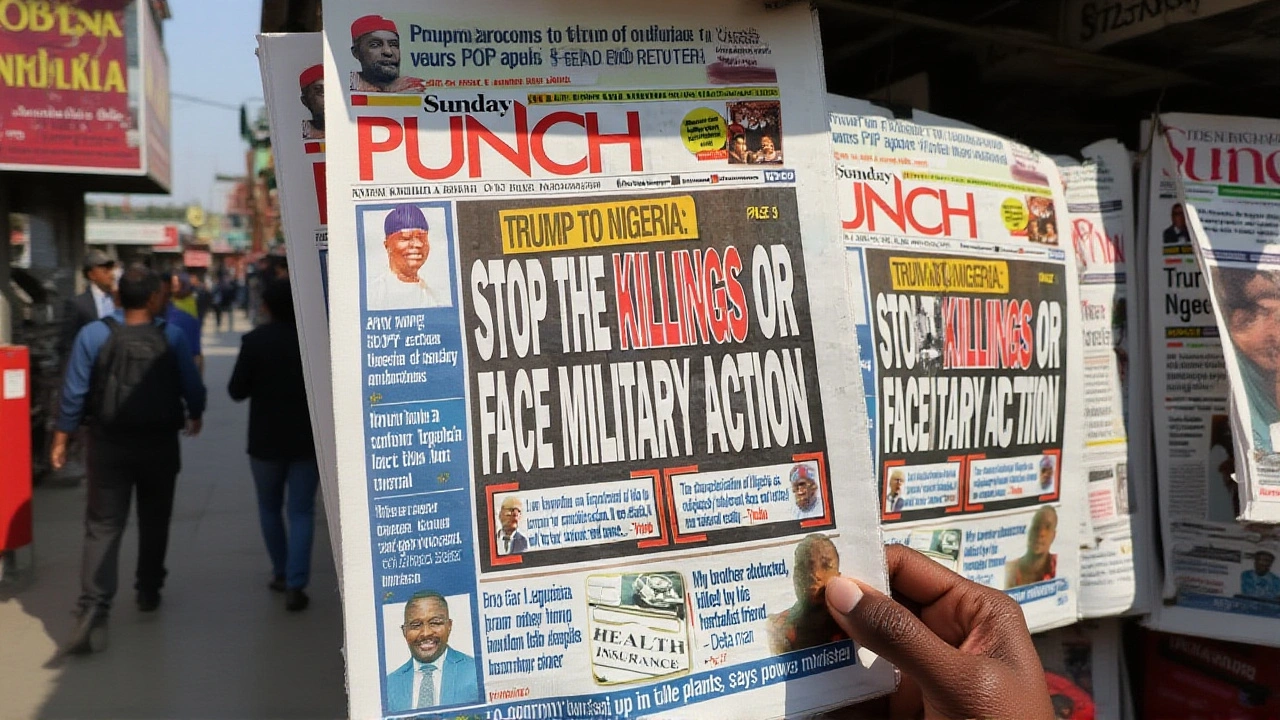
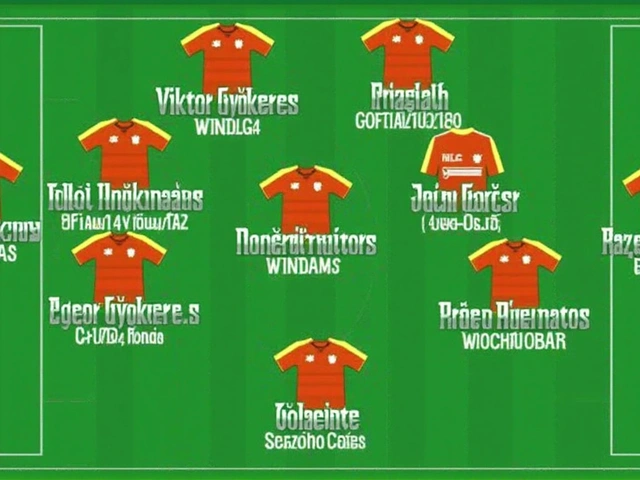
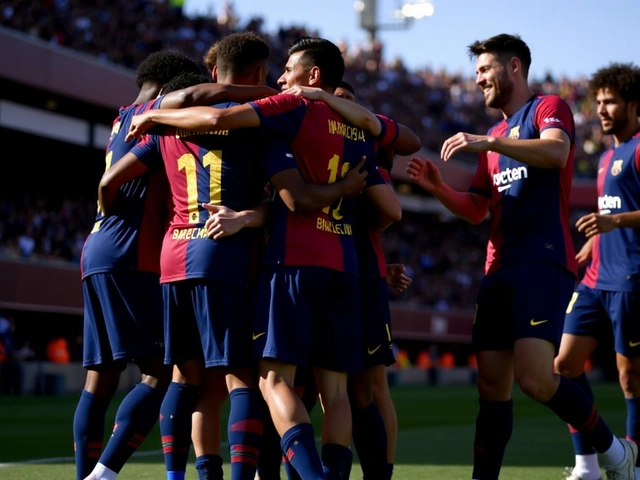

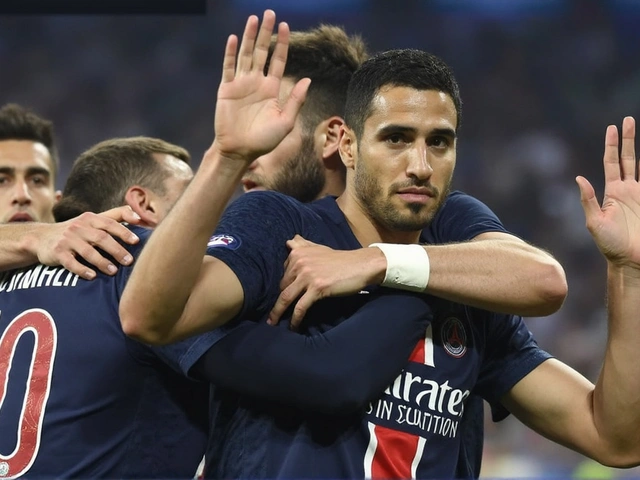
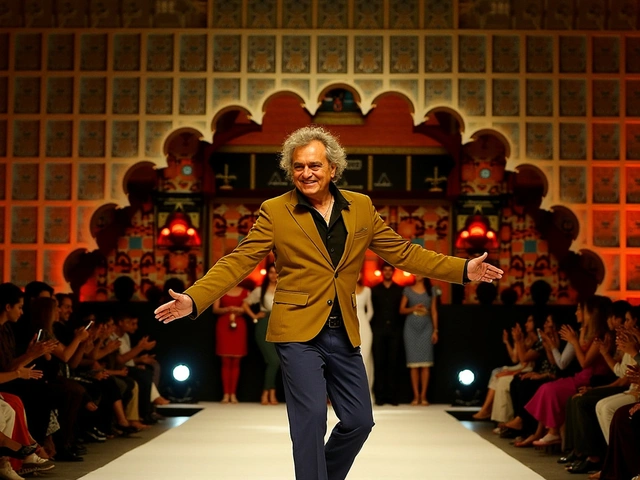
20 Comments
Shannon Carless
November 4, 2025 AT 14:57 PMlol this is fake. Trump doesn’t even know where Nigeria is.
Nadine Taylor
November 6, 2025 AT 10:43 AMWow, this is actually beautiful. A Nigerian pastor leading prayer at a U.S. inauguration? That’s the kind of moment that reminds you faith doesn’t have borders. Kumuyi’s ministry has been quietly changing lives for decades - no jets, no mansions, just real discipleship. It’s refreshing to see someone like him get recognition instead of the flashy televangelists.
JIM DIMITRIS
November 7, 2025 AT 07:16 AMkinda cool tbh. africa’s got soul.
Anita Aikhionbare
November 8, 2025 AT 05:07 AMFor real? This is what happens when you let the West co-opt African spirituality. Kumuyi didn’t need this. He’s been faithful for 50 years without Trump’s spotlight. This feels like a photo op, not a partnership.
Eve Armstrong
November 9, 2025 AT 18:10 PMLet’s contextualize: The Lausanne Movement’s 2024 data shows 60% of global Christians now reside in the Global South. Kumuyi’s invitation wasn’t performative - it was demographic. Trump’s team is aligning with the new center of gravity in global Christianity, not just optics. This is strategic theology, not symbolism.
will haley
November 10, 2025 AT 04:56 AMthey’re using him. he’s a tool. mark my words - next month, he’ll be ghosted. they always do this.
Carolette Wright
November 10, 2025 AT 16:46 PMwhy do these rich pastors always get invited to white houses? i’m tired of this. they don’t even help the poor.
Beverley Fisher
November 12, 2025 AT 08:55 AMomg i saw the video!! he was so peaceful and quiet. i cried. why can’t more leaders be like him? 🥺
Doloris Lance
November 13, 2025 AT 08:38 AMLet’s be clear: This is a dangerous normalization of televangelism under the guise of ‘religious freedom.’ Kumuyi may not be a prosperity preacher, but his inclusion legitimizes a movement that’s been used to manipulate millions. The state should not be endorsing any religious figure - period.
Alex Braha Stoll
November 14, 2025 AT 03:58 AMhonestly? i’m shocked this got so much traction. the fact that people believed trump never met him? that’s the real story - how deep the distrust runs. and how easily lies stick when they fit the narrative.
jen barratt
November 15, 2025 AT 03:15 AMyou know what’s wild? this moment mirrors the quiet revolution happening in global faith. 50 years ago, every major theologian was white and European. Now, the most vibrant churches are in Lagos, Jakarta, São Paulo. Kumuyi didn’t ask for this spotlight - but he’s the kind of leader who deserves it. Not because he’s ‘exotic’ or ‘foreign,’ but because he’s built something real. No gimmicks. No ads. Just scripture, prayer, and discipline.
Trump’s team gets it - even if the rest of us are too busy scrolling to notice. This isn’t about politics. It’s about the future of Christianity - and it’s not in Ohio or Texas. It’s in the back alleys of Lagos, where a math teacher started a Bible study with 15 kids and turned it into a movement that outgrew the West.
And yeah, the hoax? That’s the saddest part. People would rather believe a lie because it fits their bias than honor a truth that challenges their worldview. We’re not just dealing with misinformation - we’re dealing with spiritual cynicism.
Kumuyi’s still teaching theology in Lagos. Still walks to church. Still prays with the poor. That’s the real miracle. Not the prayer at the cathedral. The fact that he never stopped being humble.
Maybe the next time someone says ‘he’s just another miracle pastor,’ we should ask: Which miracle? The one they think he’s faking? Or the one he’s lived for 50 years without anyone watching?
Rick Morrison
November 17, 2025 AT 00:12 AMInteresting how the narrative shifted from ‘he wasn’t invited’ to ‘he was used.’ The former is a lie; the latter is a cynical interpretation. But both reveal a deeper cultural anxiety: the discomfort with non-Western religious authority. Kumuyi’s ministry doesn’t fit the Western mold - no megachurch branding, no social media hustle, no celebrity status. That makes him threatening to those who equate influence with spectacle.
The fact that his finances are audited by a U.S. firm, that he rejects prosperity theology, and that his growth is rooted in discipleship - not marketing - should be celebrated, not doubted. Yet, the skepticism persists. Why? Because we’re conditioned to assume African religious leaders are either frauds or puppets. Neither is true.
This moment is a quiet correction. Not just to the misinformation, but to the colonial mindset that still frames global Christianity as an extension of Western dominance. Kumuyi isn’t there because Trump invited him. He’s there because his church is the future - and someone finally noticed.
Wendy Cuninghame
November 18, 2025 AT 16:06 PMThis is a dangerous precedent. Allowing a foreign religious leader to lead a prayer at a U.S. presidential inauguration is a violation of the separation of church and state - and a betrayal of American sovereignty. Who authorized this? Who vetted him? What are his political ties? This is not religious freedom - it’s foreign influence.
Angie Ponce
November 20, 2025 AT 13:10 PMSo now we’re inviting Nigerian pastors to inaugurations? What’s next? A prayer from a Brazilian shaman? This isn’t unity - it’s cultural surrender.
Brittany Vacca
November 22, 2025 AT 01:09 AMsooo... did anyone else notice the video? he looked so calm? like he knew exactly what he was doing? i felt peace just watching. 🙏
Angela Harris
November 22, 2025 AT 17:04 PMhuh. i didn’t know this happened. cool.
Evelyn Djuwidja
November 22, 2025 AT 21:37 PMTrump is now endorsing African televangelists? Next he’ll be appointing a Zulu witch doctor to his cabinet. This is absurd.
Andrew Malick
November 23, 2025 AT 20:32 PMIs this about religion or about power? Kumuyi’s invitation isn’t spiritual - it’s geopolitical. The U.S. is trying to co-opt the rising Christian bloc in Africa to counterbalance China’s influence in the Global South. This isn’t faith - it’s realpolitik dressed in prayer robes.
And yet, if the truth is that Kumuyi’s ministry is genuinely transformative - then does the motive even matter? Or are we so jaded that we refuse to believe in good unless it’s purely selfless?
Maybe the real question isn’t why Trump invited him - but why we’re so quick to assume every gesture is manipulative. Maybe sometimes, a prayer is just a prayer.
Mark Burns
November 24, 2025 AT 07:41 AMok but imagine if a black pastor from the US got invited to a chinese president's inauguration. the internet would explode. yet this? crickets. double standard much?
Nadine Taylor
November 24, 2025 AT 21:46 PMthe fact that you’re still mad about this after all the evidence? that says more about you than about Kumuyi. he didn’t ask for this. he didn’t campaign for it. he showed up. that’s more than most of us would do.